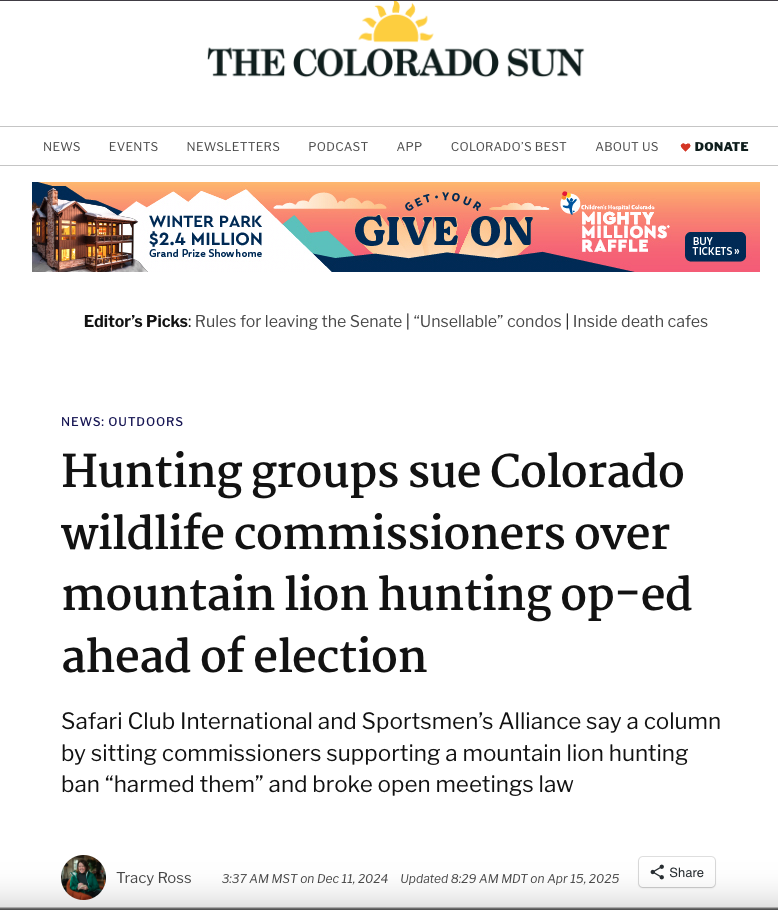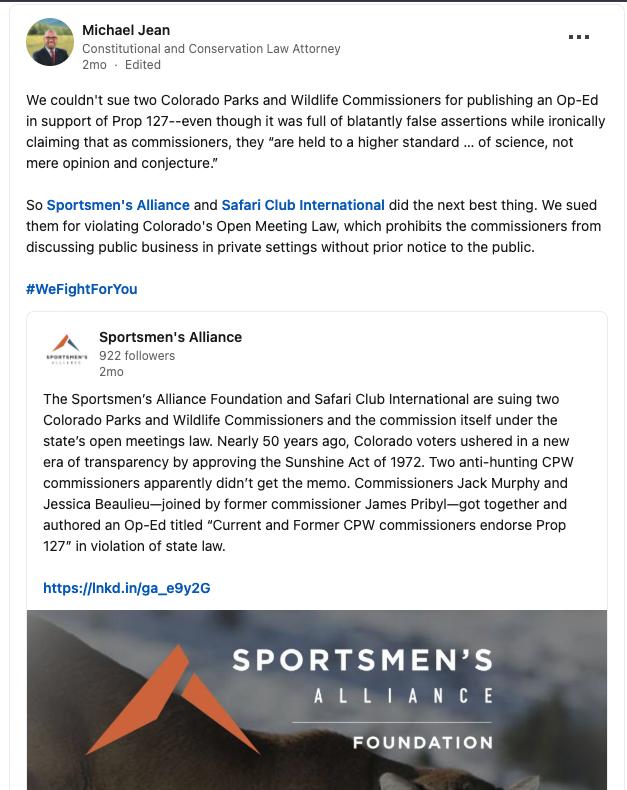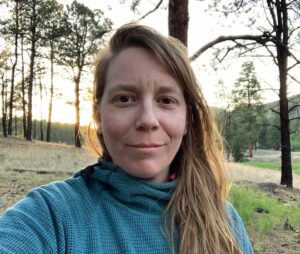When wildlife commissioners stand for true wildlife conservation, they become targets of the pro-trophy hunting lobby.
When Wildlife Commissioners Stand for Wildlife, They Become Targets
Last fall, three current and former Colorado Parks and Wildlife (CPW) Commissioners signed on to an opinion piece showing support for the Proposition 127 ballot initiative. Their courageous endorsement reflects a commitment to protecting Colorado’s mountain lions, lynx, and bobcats from trophy hunting, trapping, and unnecessary harm. However, their principled stance has generated backlash from pro-trophy hunting groups, culminating in a lawsuit.
The lawsuit suggests that signing an op-ed advocating for mountain lion protection somehow violates the state’s open meetings law, which stretches legal reasoning to absurd lengths, suggesting this criticism is less about lawbreaking and more about intimidation. The goal appears to discourage other commissioners from advocating for ethical wildlife policies that center coexistence by making an example of those who dare to speak up.
This isn’t the first time such tactics have been used. In Washington, wildlife commissioner Lorna Smith faced similar legal harassment for her pro-wildlife stance while Dr. Fred Koontz, a former Washington wildlife commissioner, resigned after facing intense political pressure and hostility from special interest groups, illustrating the personal toll these tactics take on those who prioritize ethical wildlife stewardship.
 These lawsuits are part of a troubling pattern—well-funded groups weaponizing the courts to stifle the speech of wildlife commissioners who espouse a different ideology. Is this really about preserving tradition, or is it about maintaining power and control to protect the status quo?
These lawsuits are part of a troubling pattern—well-funded groups weaponizing the courts to stifle the speech of wildlife commissioners who espouse a different ideology. Is this really about preserving tradition, or is it about maintaining power and control to protect the status quo?
I’d argue it’s the latter. Groups like the ones bringing this lawsuit demand “non-ideological” appointees to wildlife commissions when appointees have backgrounds in coexistence or ecological stewardship but don’t object when appointees come from hunting, agricultural, or industry backgrounds that align with their consumptive values. Why is it acceptable to champion one ideology while silencing another?
This double standard reinforces outdated values and undermines democratic processes. Wildlife commissions are meant to represent diverse perspectives and prioritize decision-making for wildlife as part of the public trust. When intimidation tactics force out commissioners who support science-based, compassionate policies, we all lose.
For instance, former wildlife commissioner appointee Gary Skiba—a respected career CPW biologist—stepped down after enduring a smear campaign. Other commissioners nationwide have faced escalating threats that jeopardize their safety and that of their families, forcing them to resign. Why should standing for wildlife protection come at such a high personal cost?
These attacks are not just undemocratic; they’re counterproductive. Colorado’s wildlife belongs to all Coloradans, and decisions about their lives should reflect public values, science, and ethics—not the narrow interests of trophy hunting groups. The CPW commissioners who supported Prop 127 exemplify these principles, yet they face harassment for prioritizing long-term ecological health over short-term gains.
As environmental crises escalate, we need leaders willing to challenge the status quo and advocate for ethical stewardship. The question isn’t whether we can afford to prioritize coexistence; it’s whether we can afford not to. Colorado’s wildlife heritage depends on our ability to rise above narrow interests and embrace policies that reflect compassion, science, and public trust.
Colorado’s wildlife belongs to all Coloradans. Decisions about their future should be made by leaders guided by science, ethics, and a commitment to public interest, not by the influence of special interest groups. Now, more than ever, we as advocates need to stand up for leaders who prioritize responsible stewardship and who support wildlife protection rooted in the values of compassion, science, and ethics.
Wildlife for All stands with these wildlife commissioners and ask all Coloradans who care about ethical and science-driven wildlife management to do the same.
 Michelle Lute, PhD, is a former state wildlife biologist in New Mexico and the Executive Director of Wildlife for All, an organization dedicated to just, democratic, and compassionate wildlife management.
Michelle Lute, PhD, is a former state wildlife biologist in New Mexico and the Executive Director of Wildlife for All, an organization dedicated to just, democratic, and compassionate wildlife management.

